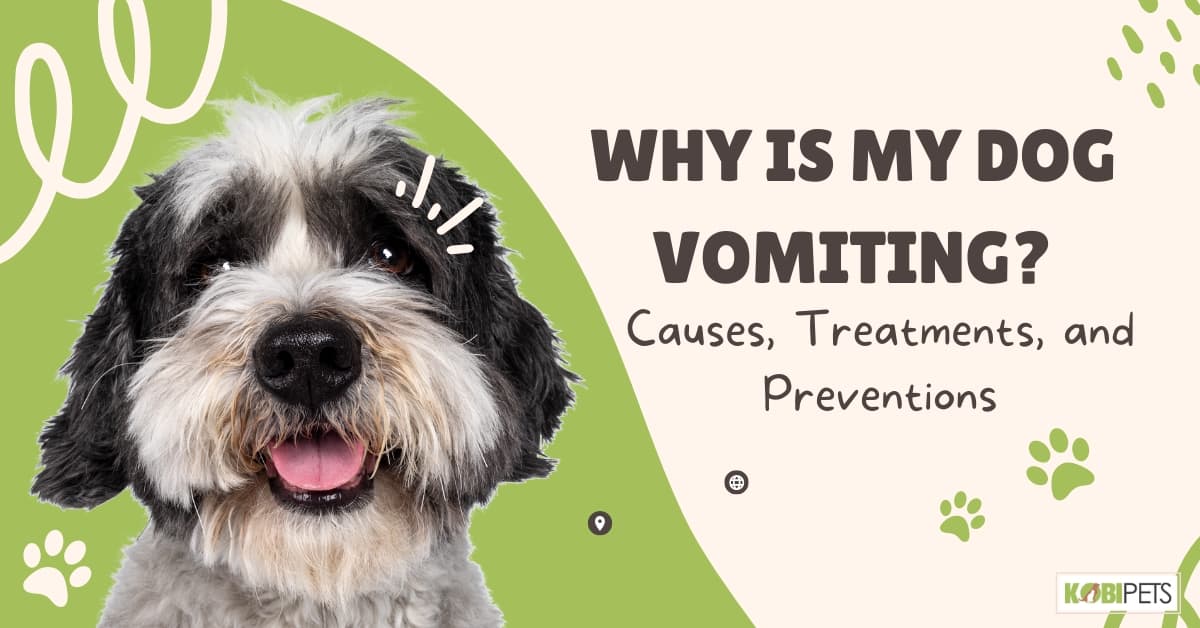
If your beloved pup is vomiting frequently, it could be a sign of any number of underlying issues. Common causes include dietary problems, gastrointestinal issues, infections, and foreign objects. It’s important to visit the vet to get an accurate diagnosis and the appropriate treatment plan.
Does your dog seem to be vomiting more than usual? As pet owners, it’s important to understand why our furry friends may be getting sick and what can be done to help them feel better. In this blog post, we will explore the common causes of dog vomiting and provide tips on diagnosis, treatment, and prevention.
Understanding the Causes of Dog Vomiting
Although mild vomiting in dogs can occur due to normal causes such as eating too much too quickly or hairballs, it is important to note that there are other factors that can cause this condition which should be addressed by a veterinarian.
Vomiting can be an indication of underlying medical conditions such as infection, exposure to toxins like heavy metals or poisoning, gastric distention or obstruction, parasites, liver disorders, and pancreatitis. Some medications and dietary changes may also lead to digestive upset causing vomiting.
Therefore, it is important to seek veterinary care whenever episodes of vomiting become persistent or when other accompanying signs are present in order to identify the underlying cause and provide appropriate treatment.

Common Causes of Dog Vomiting
Vomiting is a common issue in dogs and can be caused by many different factors. Knowing the common causes of this issue can help narrow down potential solutions so that you can quickly get to the root of the problem and take action before it becomes a bigger issue for your pup.
1. Diet-related causes
Dogs, just like humans, can experience vomiting due to an underlying health issue. Among the issues that can cause a dog to vomit are diet-related causes such as poor nutrition, dietary changes, and food sensitivities or allergies.
Poor nutrition often means that the diet lacks essential vitamins and minerals and/or is composed of low-quality ingredients that prevent a dog from getting the necessary nourishment.
Making sudden changes to a dog’s diet can also cause them to vomit since its digestive system has to adjust accordingly. Lastly, dogs may vomit due to sensitivities or allergies to certain foods; signs of food allergies or sensitivities include vomiting, diarrhea, skin reactions, and lack of appetite.
It’s important for owners to be aware of the diet-related causes for common causes of dog vomiting so they can address the issue accordingly with their vet’s help.
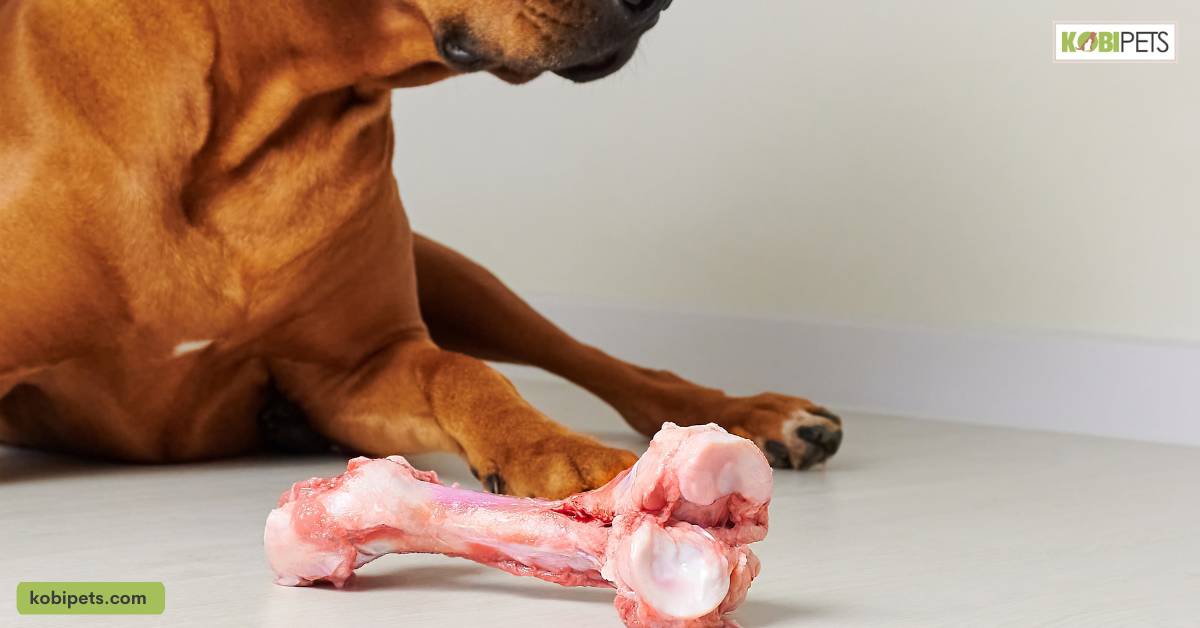
2. Gastrointestinal problems
Dogs can vomit for a number of causes, both minor and serious. Gastrointestinal problems can be a common culprit of dog vomiting; if your pup is experiencing chronic vomiting or if their vomit contains blood or bile, you should contact your veterinarian as soon as possible.
Dogs can experience gastro issues due to dietary indiscretion, allergies, infections, adverse reactions to medication, and more. Depending on the cause, there are a variety of treatments available. Your veterinarian can advise you on the best course of action for your pup in order to ensure lasting health.

3. Infections
Dog vomiting can be caused by a variety of infections, including food poisoning, bacterial infections, and viruses such as parvovirus. Food poisoning occurs when a dog eats spoiled food or food contaminated with bacteria or other microbes.
Bacterial infections that may result in vomiting include infections of the stomach and intestines due to a range of bacteria such as salmonella and campylobacter jejuni. viral gastroenteritis is another common cause of dog vomiting and commonly results from canine parvovirus or kennel cough.
If your pup starts showing signs of sickness, it’s important to take him to the veterinarian for testing in order to determine the underlying cause of their symptoms.

4. Liver and kidney diseases
Liver and kidney diseases are two of the most common causes of dog vomiting, as both organ systems filter toxins from the body. They can range from inherited disorders that predispose the dog to kidney and liver disease to infections from bacteria or an accumulation of toxins on the organs over time due to poor diet or exercise.
In some cases, medications, chemicals, or drugs can also cause harm to these vital organs. Left untreated, liver and kidney inflammation and failure can be fatal for dogs, so it is important for pet owners to know what could be causing their pet’s illness in order to seek prompt medical attention if needed.

5. Pancreatitis
Pancreatitis is an inflammation of the pancreas and is one of the most common causes of dog vomiting. While symptoms can vary from dog to dog, some common signs include abdominal pain, loss of appetite, lethargy, diarrhea, weight loss, and dehydration.
Pancreatitis can range from mild to severe which means that early diagnosis is essential for successful treatment. Your veterinarian may perform lab tests on your pup’s blood or urine to diagnose pancreatitis as well as a potential underlying cause such as kidney disease.
Treatment includes fluid therapy for dehydration, nutritional support through a diet change, and medication to stop vomiting and control intestinal inflammation. Getting your pup seen by a vet quickly is the best course of action if you suspect pancreatitis to ensure they get prompt care and treatment.

6. Foreign objects
Dogs are very well known for taking in foreign objects that they should not be consuming. As such, it often leads to vomiting as their body tries to reject the unwanted material. Popular items that dogs tend to eat around the house include children’s toys, small rocks, discarded wrappers or containers, and even pieces of clothing.
In more extreme cases, some curious canines have been known to swallow needles or fishing hooks! As a pet owner, it is important to remain vigilant of potential danger points in your home and property so that your dog is prevented from accidentally ingesting foreign objects.
If you do suspect that something has been ingested and your dog appears nauseous or is exhibiting symptoms of distress, contact your veterinarian immediately.
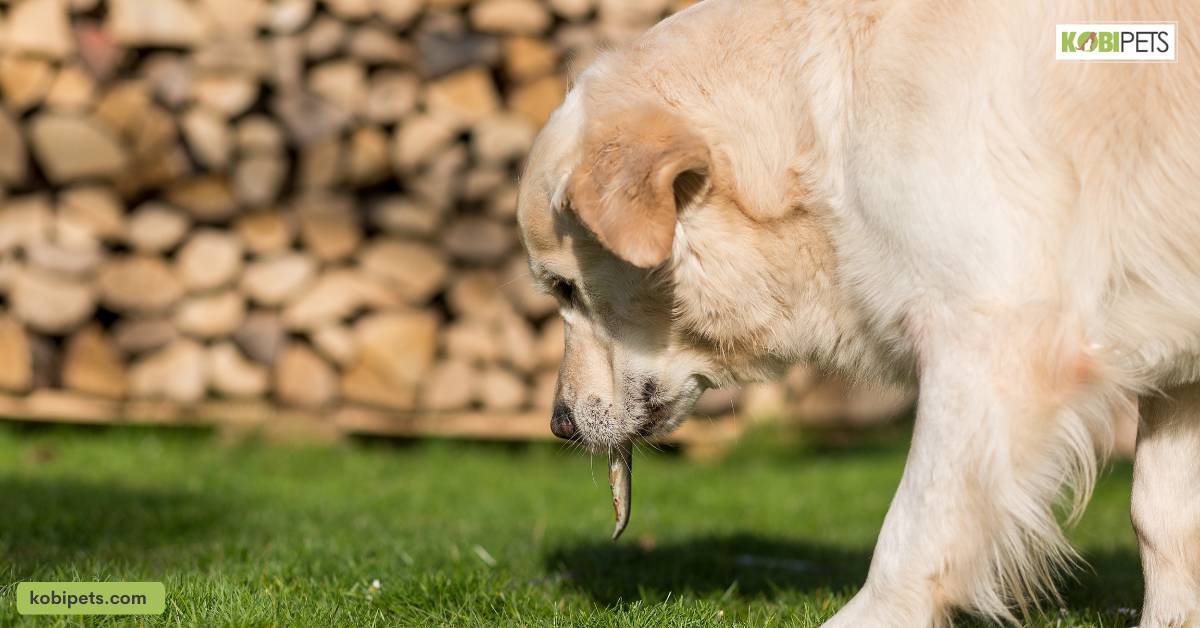
7. Motion sickness
Motion sickness is a common cause of dog vomiting, particularly in pups who are prone to car or boat rides. This type of nausea is typically caused by exposure to an erratic or chaotic movement that does not match the dog’s sense of balance.
Unfamiliar surroundings and sudden movements can also trigger motion sickness in dogs. Often times it sort of sneaks up, so an otherwise routine trip to the vet could easily be the culprit for your pup’s upset stomach.
Some breeds such as Greyhounds and Bulldogs seem to experience motion sickness more frequently than others. Treating motion sickness in dogs may involve using a special anti-nausea medication, although it is always important to consult with your veterinarian first before administering any medication.

Diagnosing the Underlying Cause of Dog Vomiting
Physical examination
Diagnosing the underlying cause of dog vomiting may require an in-depth physical examination. When conducting this type of exam, veterinarians often look for such things as dehydration, ketone levels, organ enlargement, and decreased response to stimuli, among other key indicators.
Besides physical observations and palpation of the abdomen area, additional diagnostic tools such as imaging or lab results may be necessary. Lastly, when taking into account all these elements, the veterinarian is able to make an educated evaluation which can indicate the potential triggers of vomiting in order to find the most suitable treatment plan for your pet.

Blood tests
In order to accurately diagnose the underlying cause of vomiting in dogs, it is important to include a blood test as part of the evaluation. Many common causes of canine vomiting can be identified through blood tests, including diseases and conditions like pancreatitis, liver disease, infection, endocrine disorders, and poisoning.
With the help of a complete blood count (CBC) and biochemistry profile, veterinarians can determine the presence or absence of infection and gauge organ health. Furthermore, electrolyte analysis can alert vets to urinary issues that may also be contributing factors.
While not all causes can be identified with a blood test alone, it is an essential component for building an accurate diagnosis for any dog suffering from episodes of vomiting.
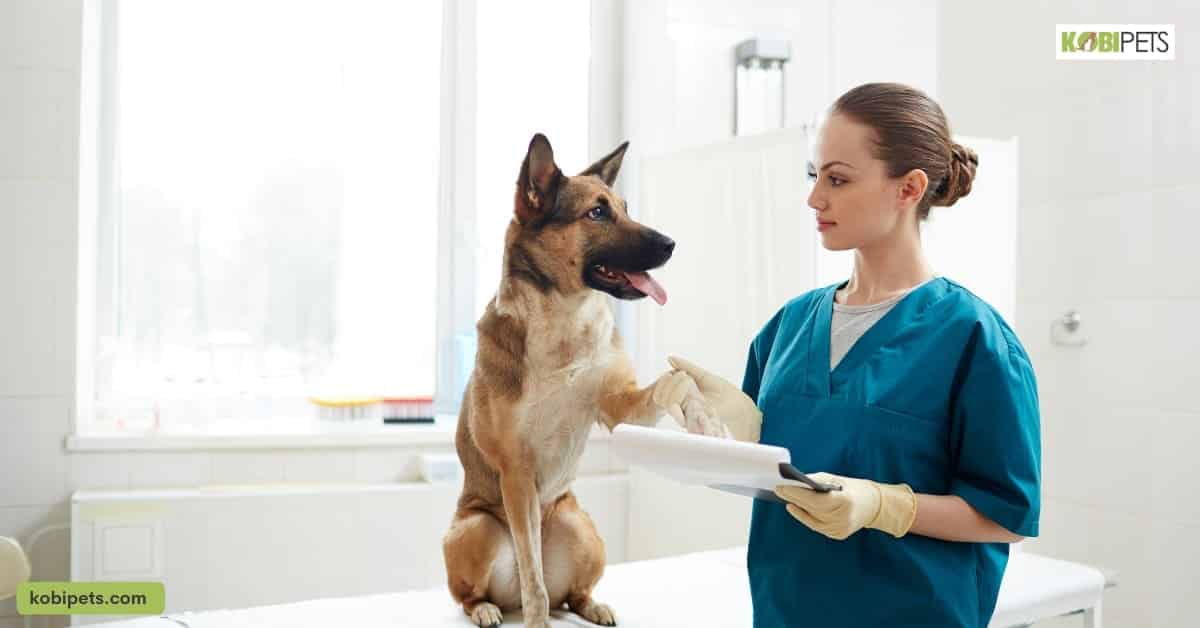
X-rays and ultrasound
X-rays and ultrasounds have become invaluable tools for veterinarians in diagnosing the underlying cause of a dog’s vomiting. This enables vets to assess the structure of the gastrointestinal system, looking for any obstructions or foreign objects inside.
Ultrasounds enable more detailed imaging of internal organs, allowing veterinarians to identify blockages, masses, and tumors that are not visible on X-rays. By utilizing these imaging technologies, veterinarians can assess a dog’s general condition and accurately diagnose the underlying cause of vomiting, ensuring swift and effective treatment plans tailored to the individual animal.
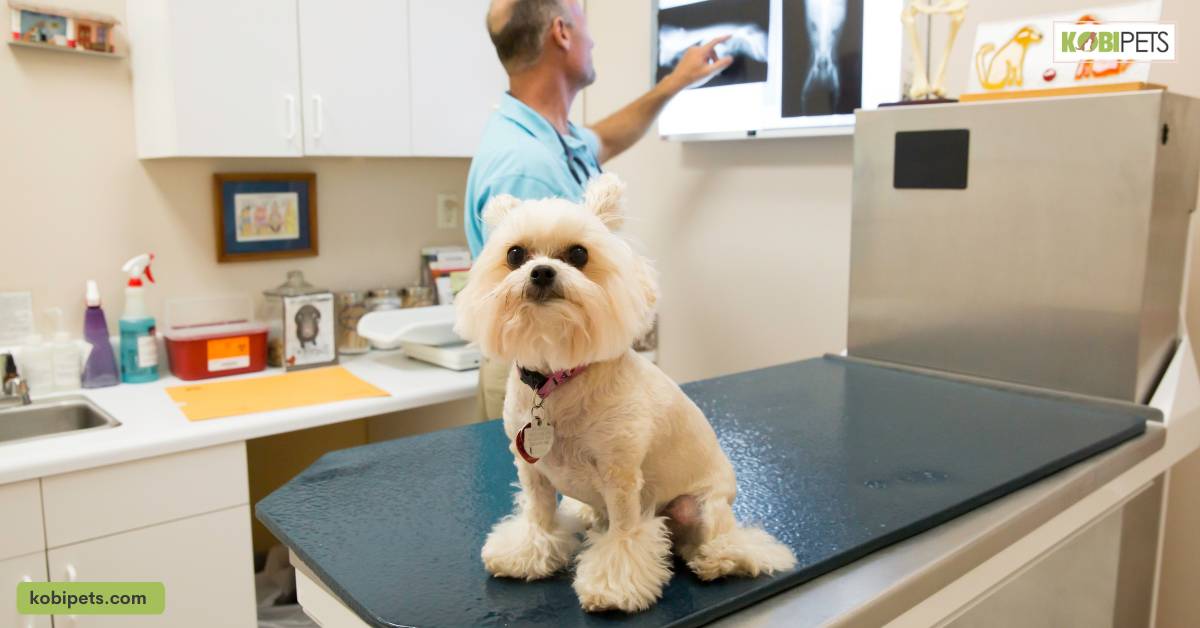
Endoscopy and biopsy
Endoscopy and biopsy can be very effective tools in diagnosing the underlying cause of dog vomiting. During an endoscopy, a specialist will insert a thin, flexible tube with a camera on it into your pup’s throat, allowing them to capture images showing how the organs are functioning and potentially identify any blockages or causes for concern.
As for the biopsy, this procedure involves taking small samples of tissue from an affected organ. This sample is then studied under a microscope to determine various factors about its health such as cell count, enzyme levels, etc., that could be contributing to your pup’s vomiting.
Together, these two procedures provide invaluable information on the root cause and give your veterinarian insight into the necessary next steps in treating your four-legged family member.

Treatment Options for Dog Vomiting
Dietary changes
Vomiting can be an alarming symptom in dogs and require prompt attention. Generally, dietary changes are among the most recommended treatment options to treat canine vomiting.
These changes include feeding smaller, more frequent meals or transitioning to a hypoallergenic diet that is easy to digest, as well as providing ample amounts of fresh water throughout the day. If the vomit is caused by infections or parasites, it’s important to have your dog tested for those as well.
Regardless of the cause of your dog’s vomiting, working with your veterinarian is essential for determining the best possible diet for your pet, as every animal will have unique needs. With a proper and nutritious diet along with medical supervision, you can help keep your beloved pooch healthy and happy.

Medications
Treating a dog’s vomiting can be incredibly difficult due to the variety of potential causes. In many cases, lifestyle and dietary changes are necessary along with a comprehensive vet exam in order to identify the exact reason for the sickness.
Depending on the root cause of a dog’s vomiting, medications used to treat their stomach upset can range from antiemetics to protectives that also help to coat and soothe the lining of the stomach and intestines.
It is important for dog owners to use medications recommended or prescribed by their veterinarian in order to ensure that it addresses both the symptom being treated as well as any associated underlying health issues.
With close monitoring of your pup’s diet, lifestyle, treatment timeline, and consistent communication with your vet, medications are often successful options for treating canine vomiting.

Surgery
Veterinary surgeons have become a vital part of providing top-notch treatment options for dogs suffering from vomiting. Depending on the cause, surgery may be used to remove tumors or strictures in the intestinal tract, repair foreign-body obstructions, or remove ruptured organs.
Surgeons often use endoscopy to view internal organs and can also perform laparoscopic surgery in cases of serious illnesses. These highly-skilled professionals help to identify more complex underlying causes and treat them surgically if needed.
Surgery gives pet owners an additional means to provide their pup with the best care possible and dramatically improve overall pet health.

Home remedies
Vomiting in dogs can be a sign of something serious and should always be taken seriously. However, there are some home remedies that could be used as an initial form of treatment before consulting a veterinarian.
For example, fasting by only offering water between meals and gradually reintroducing small amounts of food once the vomiting has stopped can be helpful when trying to rest the digestive system. Additionally, adding probiotics and foods rich in antioxidants like pumpkin and veggies can help replace lost nutrients while settling their stomachs.
Furthermore, giving your dog fluids with electrolytes to rehydrate them is another great way to treat vomiting. Remember though, if any of these remedies don’t help within 24 hours or if your pup continues to vomit for more than four days then it’s important to contact your veterinarian immediately.

Prevention of Dog Vomiting
Feeding a balanced diet
When looking to prevent potential episodes of dog vomiting, ensuring that the canine companion is fed a balanced diet is essential. It is important to prioritize quality nutrition over cost, as cheap dog food isn’t always developed with their nutritional needs in mind.
Pick a good quality pet food as specified on the label and stick with it to maintain an appropriate nutrient balance. Dogs may be picky eaters, but variety should still be included in the feeding plan; introducing wet foods like meat chunks or moistening dry kibble can provide beneficial hydration and nutrition alongside other well-balanced offerings.
Talk to your vet to help create an individualized dietary plan for your pup, making sure you follow the recommended guidelines appropriate for their age and existing medical conditions.
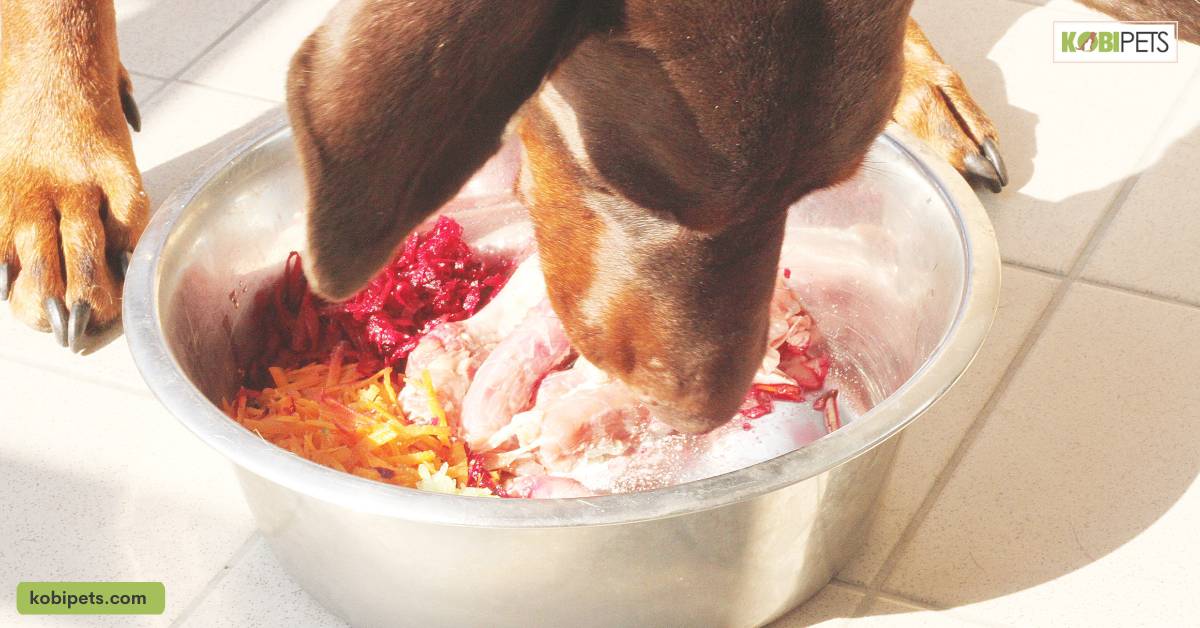
Monitoring food and water intake
Taking preventive measures and monitoring your dog’s food and water intake can help prevent bouts of vomiting. Knowing which foods your pet can’t eat, and avoiding them, is key. Additionally, ensure that the portion size of both their food and water is appropriate for their age, breed, and activity level.
Signs of dehydration from drinking too much water include excessive panting or drooling; if these indicators are present, your pet should drink less at a time to reduce the risk of vomiting. Lastly, be aware of any allergens in your pet’s diet as certain ingredients may trigger an upset stomach.
With proactive attention to overall nutrition and hydration levels for your pup, you can ensure a healthier lifestyle for them both inside and out.

Preventing access to potentially toxic substances
It’s important for pet owners to keep potentially toxic substances out of reach for their dogs; everything from human food to medications, and cleaning products can cause vomiting if ingested.
Store these items well above head level to prevent curious dogs from getting into them, and consider using child-proof locks in areas where they are stored. Additionally, it can be helpful to teach dogs a command such as “leave it” so they know not to go near the items when they are on the ground.
Pet owners might also want to make use of dog gates or other confinement methods to prevent them from accessing areas of the house with hazardous materials in them. Taking these steps can greatly reduce the chances that a dog will come into contact with something that will lead to vomiting.

Regular veterinary check-ups
Ensuring your dog has regular check-ups with a qualified, licensed veterinarian is one of the best ways to help prevent vomiting. During visits, your vet will be able to note any changes in your dog’s health from their baseline like weight and hydration levels, and can help catch issues before they become serious.
Plus by routinely evaluating their diet, your vet can suggest necessary modifications that might lessen the chances of gastrointestinal distress. Adhering to your vet’s recommendations for routine vaccinations and preventive care for worms and parasites will also help reduce the risk of vomiting.
At each check-up, it’s important to discuss any changes in appetite or behavior as these can be symptoms of underlying issues that may affect vomiting. Remember that regular veterinary exams are key to maintaining a healthy dog who rarely vomits!

In Conclusion
Dog vomiting can be caused by a variety of factors such as dietary changes or underlying illnesses. It is important to understand the root cause in order to determine the best treatment plan for your pet. From dietary changes and medications to more serious treatments such as surgery and endoscopy, there are multiple methods that can help manage canine vomiting.
It is also important to take preventive measures to reduce the chances of your pup experiencing episodes of vomiting. This includes feeding them a balanced diet, monitoring their food and water intake, and ensuring they are not exposed to any potentially toxic substances. Lastly, regular check-ups with your veterinarian can help detect underlying issues before they become serious.






